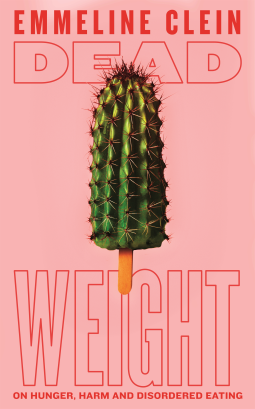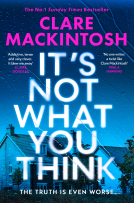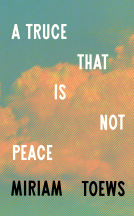
Dead Weight
On Hunger, Harm and Disordered Eating
by Emmeline Clein
This title was previously available on NetGalley and is now archived.
Send NetGalley books directly to your Kindle or Kindle app
1
To read on a Kindle or Kindle app, please add kindle@netgalley.com as an approved email address to receive files in your Amazon account. Click here for step-by-step instructions.
2
Also find your Kindle email address within your Amazon account, and enter it here.
Pub Date 4 Apr 2024 | Archive Date 4 Apr 2024
Pan Macmillan | Picador
Talking about this book? Use #DeadWeight #NetGalley. More hashtag tips!
Description
*Please note, the material will be triggering for some readers – contains discussions around eating disorders, weight, food and body image.*
'Electric with insight' - Leslie Jamison, author of The Recovering
'Lyrical and scrupulously researched' - Melissa Febos, author of Girlhood
Emmeline Clein's own history of disordered eating began when she was just twelve. In Dead Weight, alongside her own experience and through the stories of other women – famous figures from across time and popular culture, and girls she's known and loved – she traces the medical and cultural history of anorexia, bulimia, orthorexia and binge eating disorder.
In writing that’s electric, fierce and endlessly curious, Clein investigates the economic conditions underpinning our eating disorder epidemic, grapples with the myriad ways disordered eating has affected her own friendships and romantic relationships, and illuminates how today's feminism has been complicit in disordered eating culture. Through it all, she challenges the accepted narratives women absorb every day about themselves, unearthing the pernicious messages that connect female worth to inhabiting an ever-smaller form.
Aiming to galvanize readers against disordered eating, Clein imagines a world where we allow ourselves to listen to our appetites and fight back against these diseases of self-destruction. In an age of appetite suppression, when self-shrinking is fetishized as a core tenet of the feminine experience, it is far past time for a book like Dead Weight.
Advance Praise
'A lyrical and scrupulously researched portrait of disordered eating in its many manifestations . . . An authoritative, generous and persuasive debut that I wish I could go back in time and gift to my teenage self.' Melissa Febos, author of Girlhood
'This book is a bomb, made of all of the fury and intensity of any girl who wonders what exactly they are hungering for. Joan Didion of the Tumblr era. This manifesto is meant to be devoured, in all of its witty, compassionate, feverish, elegantly argued brilliance.' Kate Zambreno, author of Heroines
'Urgent, intense, and often captivating . . . A book that deserves attention' Kirkus, Starred review
'With fierce wit, excavating curiosity, and a heart fully surrendered to her subject, Clein writes about eating disorder culture from the inner reaches of what this culture has wrought. This book is electric with insight, and suffused with a strange, stubborn tenderness - a deep regard for what intimacy, hope and resistance might look like in a world where women are taught to devote their lives to destroying themselves.' Leslie Jamison, author of The Recovering
'Clein writes with flash and drama [and] critiques with clarity and nuance. She can't look away, and her writing asks that we don't, either.' Booklist
Available Editions
| EDITION | Other Format |
| ISBN | 9781035014330 |
| PRICE | £16.99 (GBP) |
| PAGES | 288 |
Available on NetGalley
Average rating from 10 members
Featured Reviews
With fierce wit, excavating curiosity, and a heart fully surrendered to her subject, Clein writes about eating disorder culture from the inner reaches of what this culture has wrought. This book is electric with insight, and suffused with a strange, stubborn tenderness - a deep regard for what intimacy, hope and resistance might look like in a world where women are taught to devote their lives to destroying themselves
It’s hard to come at this book without any sort of personal anecdotes around your own relationship with eating disorders or disordered eating habits. I will mention mine very briefly. I have always had issues with my weight, fluctuating between sizes and feelings, fitting certain clothes one day and then struggling to get into them the next. I was a secretive eater when younger. I would hide packaging and wrappers belonging to foods I’d eaten in an attempt to escape any dilapidating shame I may feel.
That’s my quick overview, and I would like to say without going into more detail, that I don’t feel I had it overly hard. A lot of it was through my own doing, as, outside of general body image messages peddled through media, as well as the heightening of “pretty privilege” in recent years, there was really nothing pushing me into certain behaviours other than me and my own head.
In Dead Weight, Emmeline Clein uses her own experiences, as well as a wide array of research, in order to put forward the case for a few different aspects of modern life having a detrimental effect on the rise of eating disorders and disordered eating, as well as the seemingly purposeful neglect of care given to those suffering with these illnesses and conditions. This is with a lens focusing in on the experience that women have with these issues.
Clein’s language is clear and precise, as she moves from social media subgroups and their role in caring for and potentially harming those with eating disorders, to the idea of celebrity, especially with regards to it’s image, its mind-numbing marketing message and the effect this has on women.
Stats are littered throughout. While this is something to look towards as a positive, I feel that more spacing between the facts being given would help in allowing them to breathe for the reader. This isn’t solely an academic text, and it has a message it wants to put forward. Listing statistics in the way that Clein does at times, could potentially dilute any impact that these shocking numbers would have.
You will see that I mentioned both eating disorders and disordered eating together earlier in this piece. I’ve done this because they’re not really that closely related, or at least there is enough of a differentiation between the two of them and the impact they have on their sufferers in order to split them. Clein doesn’t differentiate between the two of these conditions clearly enough for my liking. Things can become slightly muddled when you are then inserting statistics for each of them, and it creates a certain difficulty for the reader in how they will come away feeling about these two very different conditions.
The majority of Clein’s writing is clear throughout, and I feel she is a personable enough writer that their is a consistent and open voice leading the narrative. Therefore, despite the potentially stale way in which her points are structured - fact, quick explanation, next fact, next explanation, etc - the reader will stick with Clein for as long as she needs.
The points raised here are incredibly important, and there are moments, specifically the areas around money changing hands and the sections with big pharma crawling all over the page, where you will find yourself becoming increasingly angry at the injustice and corruption which underscores the problem at large. Each of the issues raised have genuine triggering effects on what is a mental health case at it’s core. The glaring issue with this mental health crisis, as opposed to the many others, is the bodily impact - the material effects - that are on full show for the world to stare and glower at.
As a consequence of numerous topics raised in this book, society as a whole sees disgust in the unordinary. That disgust overrides any potential care that many have for those suffering. This, to me, is the issue we must tackle. The perception from society of seeing “fat” or “skinny” as “other”, of not excepting people who do not have bodies that are streamlined to what we see through filtered screens, acts as a hurdle to an acceptance of people as they are. Judgement stains us completely.
I’ve seen some points raised in other reviews of this book based around Clein’s lack of historical fact being included to show that some of the issues with disordered eating have been prevalent and consistent for centuries. I feel this is less important for the book being viewed and considered here, as Clein seems to make a point of the upward trend in disordered eating habits being the catalyst for writing this book. The upward trend is the point. Not the mere existence of the issue. Perhaps it would’ve helped contextually for the book, but I don’t feel it would add anything to the message that the author is making. Nothing is particularly lost with the omission of historical context.
Dead Weight is a book packed to the brim with stats, figures, and facts that will leave you reeling, saddened, hopeful, anguished, and every other emotional reaction you could have. It’s a tender topic. One that I feel Emmeline Clein treates with care and precision throughout. Perhaps some information is missing if you are looking for a far broader piece of text, however in terms highlighting an issue that is being neglected and misunderstood as much as eating disorders are today, this book does what it needs and sets out to do.
Readers who liked this book also liked:
Kalan Chapman Lloyd
General Fiction (Adult), Literary Fiction, Women's Fiction


















